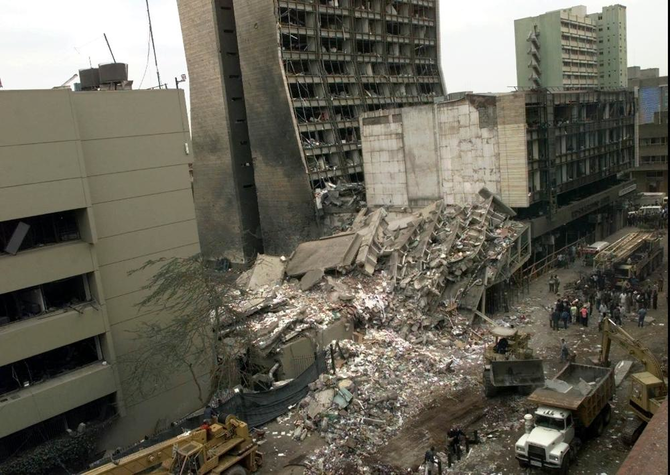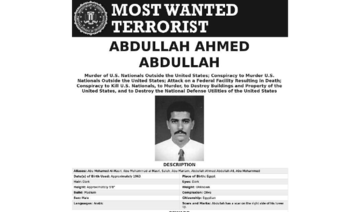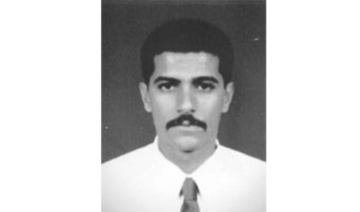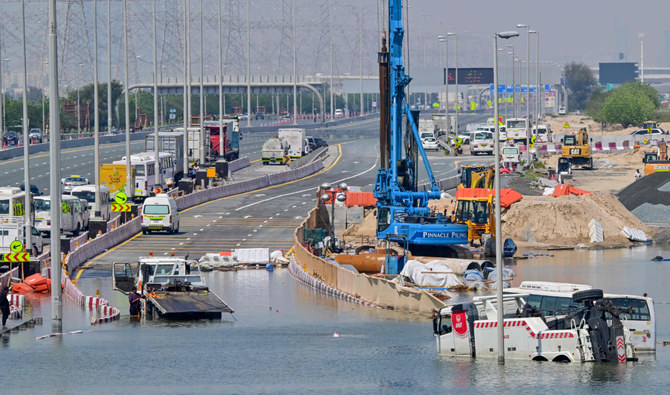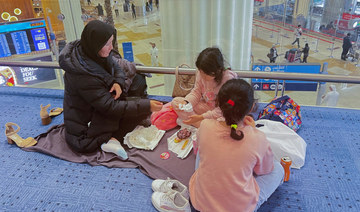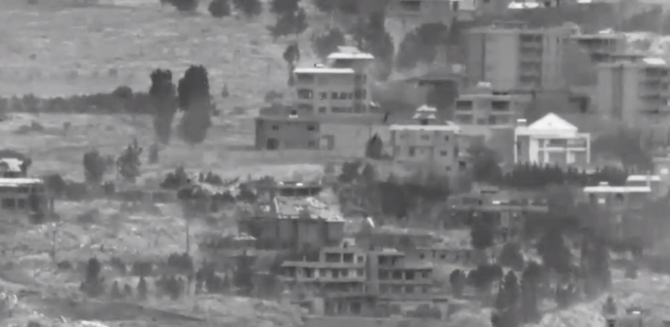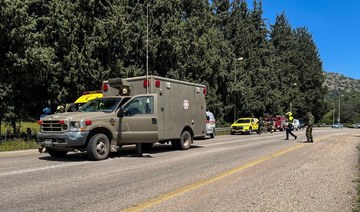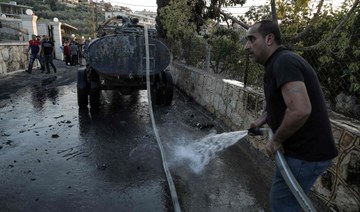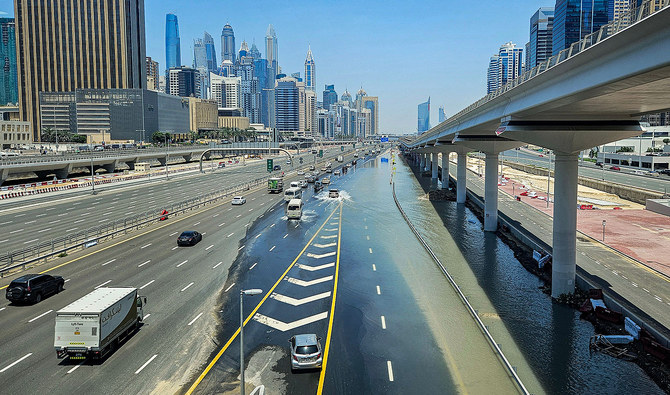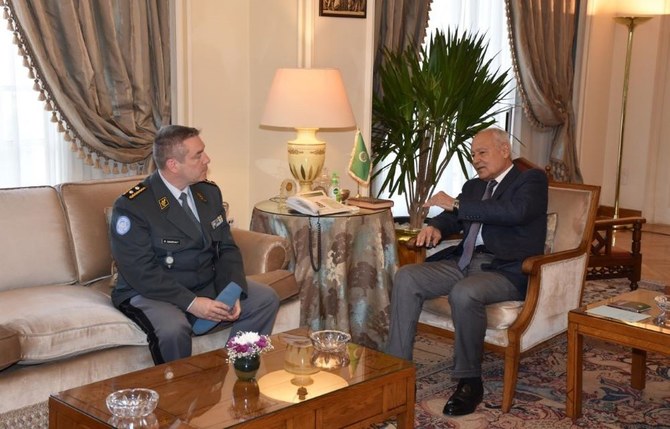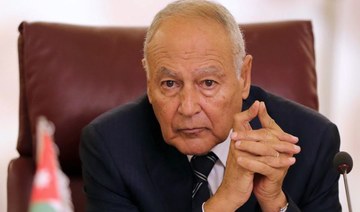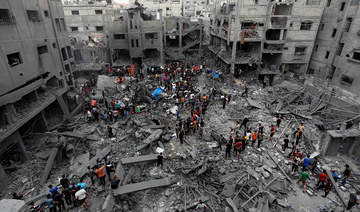WASHINGTON: The US and Israel worked together to track and kill a senior Al-Qaeda operative in Iran earlier this year, a bold intelligence operation by the two allied nations that came as the Trump administration was ramping up pressure on Tehran.
Four current and former US officials said Abu Mohammed Al-Masri, Al-Qaeda’s No. 2, was killed by assassins in the Iranian capital in August. The US provided intelligence to the Israelis on where they could find Al-Masri and the alias he was using at the time, while Israeli agents carried out the killing, according to two of the officials. The two other officials confirmed Al-Masri’s killing but could not provide specific details.
Al-Masri was gunned down in a Tehran alley on Aug. 7, the anniversary of the 1998 bombings of the US embassies in Nairobi, Kenya, and Dar es Salaam, Tanzania. Al-Masri was widely believed to have participated in the planning of those attacks and was wanted on terrorism charges by the FBI.
Al-Masri’s death is a blow to Al-Qaeda, the terror network that orchestrated the Sept. 11, 2001, attacks in the U.S, and comes amid rumors in the Middle East about the fate of the group’s leader, Ayman Al-Zawahiri. The officials could not confirm those reports but said the US intelligence community was trying to determine their credibility.
Two of the officials — one within the intelligence community and with direct knowledge of the operation and another former CIA officer briefed on the matter — said Al-Masri was killed by Kidon, a unit within the secretive Israeli spy organization Mossad allegedly responsible for the assassination of high-value targets. In Hebrew, Kidon means bayonet or “tip of the spear.”
Al-Masri’s daughter was also targetted
The official in the intelligence community said Al-Masri’s daughter, Maryam, was also a target of the operation. The US believed she was being groomed for a leadership role in Al-Qaeda and intelligence suggested she was involved in operational planning, according to the official, who like the others, spoke on condition of anonymity to discuss sensitive intelligence.
Al-Masri’s daughter was the widow of Hamza bin Laden, the son of Al-Qaeda mastermind Osama bin Laden. He was killed last year in a US counterterrorism operation in the Afghanistan-Pakistan region.
The news of Al-Masri’s death was first reported by The New York Times.
Both the CIA and Israeli Prime Minister Benjamin Netanyahu’s office, which oversees the Mossad intelligence agency, declined to comment.
Israel and Iran are bitter enemies, with the Iranian nuclear program Israel’s top security concern. Israel has welcomed the Trump administration’s withdrawal from the 2015 Iranian nuclear accord and the US pressure campaign on Tehran.
At the time of the killings, the Trump administration was in the advanced stages of trying to push through the UN Security Council the reinstatement of all international sanctions on Iran that were lifted under the nuclear agreement. None of the other Security Council members went along with the US, which has vowed to punish countries that do not enforce the sanctions as part of its “maximum pressure” campaign on Iran.
Israeli officials are concerned the incoming administration of President-elect Joe Biden could return to the nuclear accord. It is likely that if Biden does engage with the Iranians, Israel will press for the accord to be modified to address Iran’s long-range missile program and its military activity across the region, specifically in Syria and its support for groups like Hezbollah, Hamas, and Islamic Jihad.
Proof of Iran harboring Al-Qaeda terrorists
The revelations that Iran was harboring an Al-Qaeda leader could help Israel bolster its case with the new US administration.
Al-Masri had been on a kill or capture list for years. but his presence in Iran, which has a long history of hostility toward Al-Qaeda, presented significant obstacles to either apprehending or killing him.
Iran denied the reports, saying the government is not harboring any Al-Qaeda leaders and blaming the US and Israel for trying to foment anti-Iranian sentiment. US officials have long believed a number of Al-Qaeda leaders have been living quietly in Iran for years and publicly released intelligence assessments have made that case.
Al-Masri’s death, albeit under an assumed name, was reported in Iranian media on Aug. 8. Reports identified him as a Lebanese history professor potentially affiliated with Lebanon’s Iranian-linked Hezbollah movement and said he had been killed by motorcycle gunmen along with his daughter.
Lebanese media, citing Iranian reports, said that those killed were Lebanese citizen Habib Daoud and his daughter Maryam.
The deaths of Al-Masri and his daughter occurred three days after the catastrophic Aug. 4 explosion at the port of Beirut and did not get much attention. Hezbollah never commented on reports and Lebanese security officials did not report that any citizens were killed in Tehran.
A Hezbollah official on Saturday would not comment on Al-Masri’s death, saying Iran’s foreign ministry had already denied it.
The alleged killings seem to fit a pattern of behavior attributed to Israel in the past.
In 1995, the founder of the Palestinian militant group Islamic Jihad was killed by a gunman on a motorcycle in Malta, in an assassination widely attributed to the Mossad. The Mossad also reportedly carried out a string of similar killings of Iranian nuclear scientists in Iran early last decade. Iran has accused Israel of being behind those killings.
Yoel Guzansky, a senior fellow at the Institute for National Security Studies and former analyst on Iranian affairs in the prime minister’s office, said it has been known for some time that Iran is hiding top Al-Qaeda figures. While he had no direct knowledge of Al-Masri’s death, he said a joint operation between the US and Israel would reflect the two nations’ close intelligence cooperation, with the US typically stronger in the technical aspects of intelligence gathering and Israel adept at operating agents behind enemy lines.




